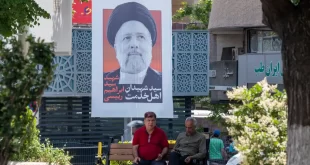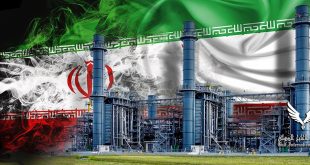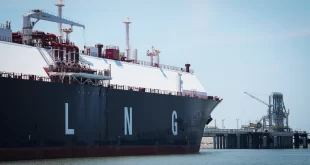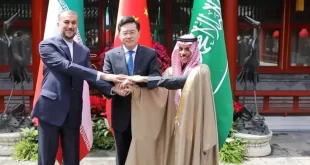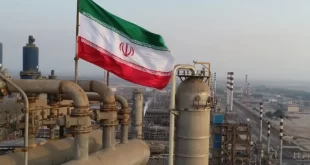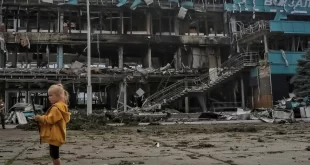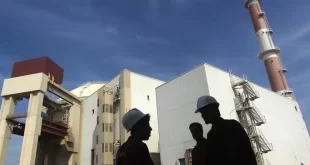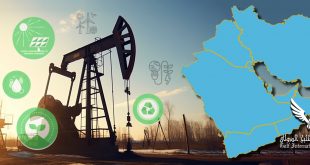Iran says it will produce 4m bpd Sceptics say it is an election ploy Exports using a ‘shadow fleet’ Iran has said it intends to raise its oil output to 4 million barrels per day from about 3.5 million bpd currently. Industry experts are sceptical about Tehran’s ambitions and say …
Read More »Untangling the Motives Behind Iran’s New Energy Agreements
Beset by an unprecedented domestic energy crisis, Iran has sought to cement foreign energy deals and investment, to varied success. Though the country faces a raft of international sanctions and several major geopolitical hurdles, Iran’s oil and gas sector has seen a significant expansion in recent months—a period of growth marked by …
Read More »SCARCITY & SECURITY: EUROPEAN IMPACT OF BIDEN’S LNG DECISION
Biden’s LNG freeze makes little sense from both European and the US energy security perspectives. It won’t promote a green energy transition. Most energy experts acknowledge that LNG is the principal bridge fuel necessary for a green future. And if American LNG is not readily available, it will be replaced …
Read More »Saudi Iranian Relations Remain Cool Despite Renewed Diplomatic Ties
Hopes for increased economic cooperation between Iran and Saudi Arabia following last year’s diplomatic reconciliation have not materialized, due to historical and political factors Saudi Arabia and Iran have a long history of hostility, usually taking opposing sides in regional conflicts such as Yemen, Lebanon, and Syria. This competition, fueled by disruptive activities …
Read More »Shaping the Future: The 7th GECF Summit and Geopolitical Realities of the Gas Market
On the heels of its latest forum in Algiers, the Gas Exporting Countries Forum (GECF) has grown substantially in size and influence, highlighting the essential role of natural gas in balancing global energy, promoting sustainability, and addressing market volatility, technological challenges, and geopolitical tensions. The 7th Gas Exporting Countries Forum (GECF) Summit in Algiers …
Read More »Limitations Abound On Iran’s Ability To Boost Oil Output
Bijan Zanganeh, Iran’s former oil minister, has made bold assertions regarding Iran’s potential to significantly increase its oil production, despite minimal investments and limited access to technology. Iran’s crude oil production stood at an estimated 3,163,000 barrels per day as of January 2024, showing a slight decrease from December 2023’s output of …
Read More »Iran’s Chabahar Space Center: Balancing Ambitions And Realities
Iran asserts that its space program is geared towards fostering scientific advancement, yet it undeniably bolsters its regional influence, and could enhance its hard power capabilities. Space is viewed as the paramount strategic vantage point, stemming from Iran’s missile program, whose advancement holds significant geopolitical implications. The inclusion of military satellites …
Read More »Iran-Russia Arms Trade: Geopolitics And Global Implications
The military collaboration between Iran and Russia has significantly intensified since the invasion of Ukraine, with Tehran delivering offensive weapons used against civilian targets. The recent revelation by the Prana Network of Iran’s clandestine arms deal with Russia, valued at $1.75 billion, has sparked concerns about its implications on global security …
Read More »Iran Plans More Nuclear Reactors Despite Serious Hurdles
Iran’s recently stated plan to build four more nuclear power reactors has raised questions about its feasibility as the country wrestles with economic crisis and isolation. According to early estimates, work has started in the southern region with a five-thousand-megawatt total capacity in mind. With 4,000 employment prospects and an estimated …
Read More »Navigating New Horizons: The Gulf’s Dynamic Energy Landscape in 2024
In 2024, the Gulf’s energy sector is poised at a critical juncture, balancing the traditional reliance on hydrocarbons with ambitious strides toward renewable energy and economic diversification amidst global economic fluctuations and regional geopolitical tensions. The Middle East played a significant role in the global energy market in 2023, navigating the delicate …
Read More »
